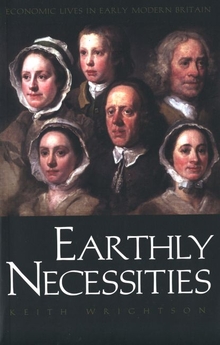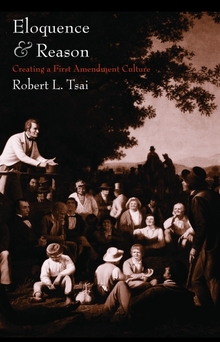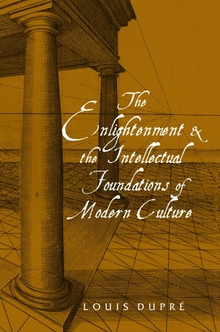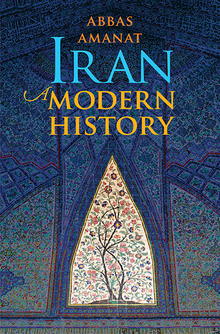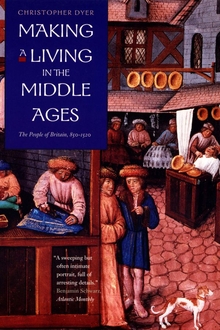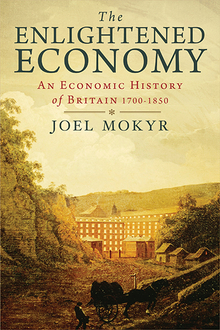Earthly Necessities
WARNING
You are viewing an older version of the Yalebooks website. Please visit out new website with more updated information and a better user experience: https://www.yalebooks.com
Economic Lives in Early Modern Britain
Keith Wrightson
This lucid and elegantly written book seeks to redefine the economic history of early modern Britain for a new generation of readers. Combining the research of economic historians with the insights provided by recent advances in social and cultural history, Keith Wrightson describes the basic institutions and relationships of economic life, traces the processes of change, and examines how these changes affected men, women, and children at all social levels.
Wrightson reemphasizes the significance of the period as a turning point in British economic development, one that included the creation of an integrated market economy, the expansion of capitalist organization and enterprise, and reconfigurations of economic power. He shows how economic practices and priorities were embedded in social relations and how shifts in attitudes, values, and understandings played an essential part in the emergence of a market society. And he compares and contrasts the distinctive experiences of Scotland and Wales with those of England. Novel in its structure, scope, and emphasis on the lived experience of the period, the book vividly demonstrates the gains and costs of economic change.
Wrightson reemphasizes the significance of the period as a turning point in British economic development, one that included the creation of an integrated market economy, the expansion of capitalist organization and enterprise, and reconfigurations of economic power. He shows how economic practices and priorities were embedded in social relations and how shifts in attitudes, values, and understandings played an essential part in the emergence of a market society. And he compares and contrasts the distinctive experiences of Scotland and Wales with those of England. Novel in its structure, scope, and emphasis on the lived experience of the period, the book vividly demonstrates the gains and costs of economic change.
Keith Wrightson, formerly professor of social history at the University of Cambridge, is now professor of history at Yale University.
“Keith Wrightson is one of the most distinguished historians of communities in early modern Britain during the crucial two centuries before the Industrial Revolution. . . . Written with great skill and elegance. Wrightson combines the interpretation of early-modern British history developed by F.J. Fisher—the slow evolution of an underdeveloped economy towards sustained economic growth—with the analysis of the structures of society that he has done so much to pioneer. . . . This is a very fine book.”—L.A. Clarkson, Albion
“[This book’s] value lies in its appeal as a clear and coherent account of early modern economic and social history from the pen of an able and experienced practitioner. Students new to the subject now have a full, accessible, and scholarly summation of the mass of original research on this key period published over the last two to three generations. . . . [A] fine book.”—T.M. Devine, American Historical Review
“Wrightson has written a splendid book that will define early modern British social history for the next generation. . . . In beautifully crafted prose . . . he begins with a fine historiographical essay, manages to include Scotland and Wales, and closes with a useful bibliography. . . . Must reading for anyone with a serious interest in European social and economic history.”—Choice
“Wrightson’s is a challenging new textbook that covers English social and economic history between about 1500 and 1750. It is novel in its conception, logically satisfying in its structure, fully Britannic in its coverage, densely packed with interesting material, yet accessibly—even stylishly—written from first to last. A palpable hit! . . . But merely to call it an excellent textbook doesn’t do full justice to this book; it is also a challenging original interpretation of early modern British society which all of Wrightson’s colleagues in pre-industrial British history will benefit from. It will be read with profit both by sophisticated undergraduates and by their tutors!”—Michael Zell, Continuity & Change
“As is often the case with good books, Earthly Necessities succeeds at several different levels. A splendid introduction to the subject for undergraduates, [the book] also includes many gems for [its] specialist readers. Anyone wanting a comprehensive, balanced and well-written overview of the changing world that was early modern Britain should read this book.”—David Stead, EH.Net
“Students and non-specialists will find here a lucid and comprehensive account of the economic history of Britain between ca. 1470 and ca. 1750. . . . A truly important book.”—John Small, Enterprise & Society
“An excellent synthesis, well informed, well nuanced [and] readable. . . . A very effective account of a long and complex transition in British economic life, a transition characterised by the advance of commercialisation.”—James Sharpe, History Today
"Wrightson has done an exemplary job of producing a new synthesis and coherent (although not unlinear) narrative from the dense thickets of scholarship surrounding the early modern British economy. With its paperback edition soon to appear . . . this will doubtless be an invaluable textbook.”—Richard Sheldon, History Workshop Journal
“With his deep insights into social and cultural history, Wrightson gives a holistic interpretation of early modern British society, analyzing how economy, social life, and cultural norms were woven together. . . . Earthly Necessities is an extremely valuable contribution to our knowledge of Britain’s early modern economic history.”—Maria Agren, History: Reviews of New Books
“Wrightson gives a holistic interpretation of early modern British society, analyzing how economy, social life, and cultural norms were woven together. . . . . Based on an impressing familiarity with new research and presented with the lucidity of an experienced teacher, Earthly Necessities is an extremely valuable contribution to our knowledge of Britain’s early modern economic history. It is highly enjoyable to read and includes many thought-provoking formulations. It will be useful to students (there are ample bibliographic references) and to scholars alike. I know of no other book able to compete with this one in all of these respects.”—Maria Agren, History: Reviews of New Books
“Wrightson’s innovativeness lies in interweaving social and economic literatures into a coherent whole and in covering Wales and Scotland. His well-written, scholarly prose is accessible . . . Highly recommended for academic and larger public libraries.”—Library Journal
“This . . . is a splendid book, beautifully organised, mellifluously written, and powerfully evocative of the birthpangs of market culture. It convincingly shows why economic history matters; why the time is right for a new synthesis; and why there has been such long-standing concern with the early modern period as a time of change.”—Steve Hindle, Rural History
“[O]utstanding. . . . By exposing some of the human fears, optimism and needs which inspire all producation, exchange, and consumption, Wrightson provides the most powerful demonstration of the value and the importance of economic history.”—Scottish Economic and Social History
“This is an excellently worked volume which will greatly aid teachers of early modern British economic history. . . . This may be the best undergraduate textbook on early modern economic history available.”—Ian Mortimer, Sixteenth Century Journal
“This is a wonderful book: profoundly learned, brilliantly conceptualised, confidently and clearly and vividly written. It is a truly distinguished piece of work.”—John Morrill, Cambridge University
Won the John Ben Snow Foundation Prize 2001 Competition awarded annually by the North American Conference on British Studies
Selected by Choice as an Outstanding Academic title for 2001
ISBN: 9780300094121
Publication Date: June 10, 2002
Publication Date: June 10, 2002
388 pages, 6 x 9

